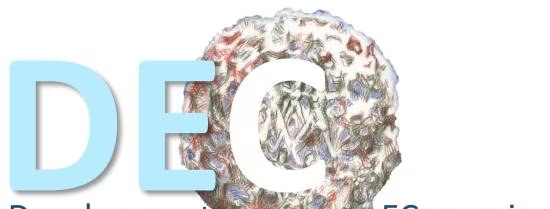Development Economics research has a clear impact as indicated by the Google science metrics reported below
Impact both in terms of overall citations and h-index is good for experienced research-intensive staff and encouraging for junior staff.
Researcher | Citations | h-index | |
3695 | 31 | 68 | |
2824 | 30 | 69 | |
| Binyam Demena | 103 | 5 | 3 |
| Georgina Gomez | 984 | 13 | 15 |
4025 | 31 | 73 | |
2679 | 19 | 32 | |
2290 | 20 | 25 | |
424 | 11 | 13 | |
2066 | 22 | 28 | |
2852 | 28 | 47 | |
335 | 12 | 15 |
Reported data collected on 14 July 2020
Details of key papers and books produced by our researchers.
Development Economics research is innovative both in terms of substance, method and funding.
Innovative methodologies are reflected in multi-method and/or cross-disciplinary approaches. Our research involves innovative projects such as the use of drones to assess environmental damage or the use of SMS messages to increase psycho-social well-being.
In addition, we are experienced not only in employing experimental and quasi-experimental impact analyses but also in setting up creative lab-in-the-field experiments across developing countries and contexts. Another major and sustained effort at research synthesis has led to innovative meta-analyses that form part of PhD theses and impact evaluation projects.
Increasingly, Development Economics researchers also look for alternative and innovative funding, such as the Dutch postcodeloterij, the Bill and Melinda Gates Foundation, the International Initiative for Impact Evaluation and the Rijksdienst voor Ondernemend Nederland.
Matthias Rieger has been an active member of the Bill and Melinda Gates Foundation's Healthy Birth, Growth, and Development Knowledge Integration community (HBGDki; October 2015-December 2018, financed by two individual grants).
This innovative initiative gathers a multi-disciplinary, big data-driven community of researchers working on child stunting. Matthias has attended several network meetings and results have been presented to the highest leadership of the Gates Foundation.
Matthias Rieger was expert advisor to WHO Europe’s Natural Experiments Study Group.
Natural experiments that are very commonly used in economics to estimate causal effects are now increasingly used in other fields such as public health.
For an example of this work, see the introduction to a special issue on Natural Experiments for Evaluating Chronic Disease Policy Interventions by Snell, A., Reeves, A., Rieger, M., Galea, G., Mauer-Stender, K., Mikkelsen, B. & Stuckler, D. (2018). European Journal of Public Health.
The All Eyes on the Amazon project deploys frugal but advanced technologies, that include mobile phones with bespoke apps and drones, to monitor the local impacts of the oil industry in the Ecuadorian and Peruvian Amazon.
The activities that are born out of the demands and in long-standing partnership with local and indigenous organizations aims at promoting the detection and reporting of environmental liabilities (oil spills, gas flaring, etc.).
The information is then used by social movements for campaigning, to engage with state agencies and to attract mass media attention.
PhD researchers Binyam Demena, Gina Ledda, Selwyn Moons and Mai Lan Nguyen contributed to the further development of meta-analysis producing (draft)chapters that were presented at the annual meeting of the Meta-Analysis in Economic Research network (MAER-net).
The innovative character and scientific relevance of their methodological innovations is reflected by publications in the Journal of Economic Surveys, World Economy, Applied Economics and Emerging Markets Finance and Trade

Development Economics focuses on applied policy-related research. This helps to establish evidence-based policy recommendations and the implementation of projects and pilots that generate societal impact.
We conduct studies commissioned by the evaluation department of the Dutch Ministry of Foreign Affairs and the Dutch Development Bank but also in collaboration with local partners such as the Burkinabe Ministry of Health or Vietnamese schools. Our consultancy projects not only generate substantial net income for ISS but are also instrumental in creating unique datasets that form the basis for top notch publications and produce important societal impact.
In addition, we feature our work in regular blog contributions, policy briefs, easy-to-access infographics and research videos as well as interviews, radio and television appearances. By engaging with the wider public as well as policymakers we aim to contribute to societal change.
Development Economics has a long tradition in linking research and society in a pragmatic and effective way. Some examples: